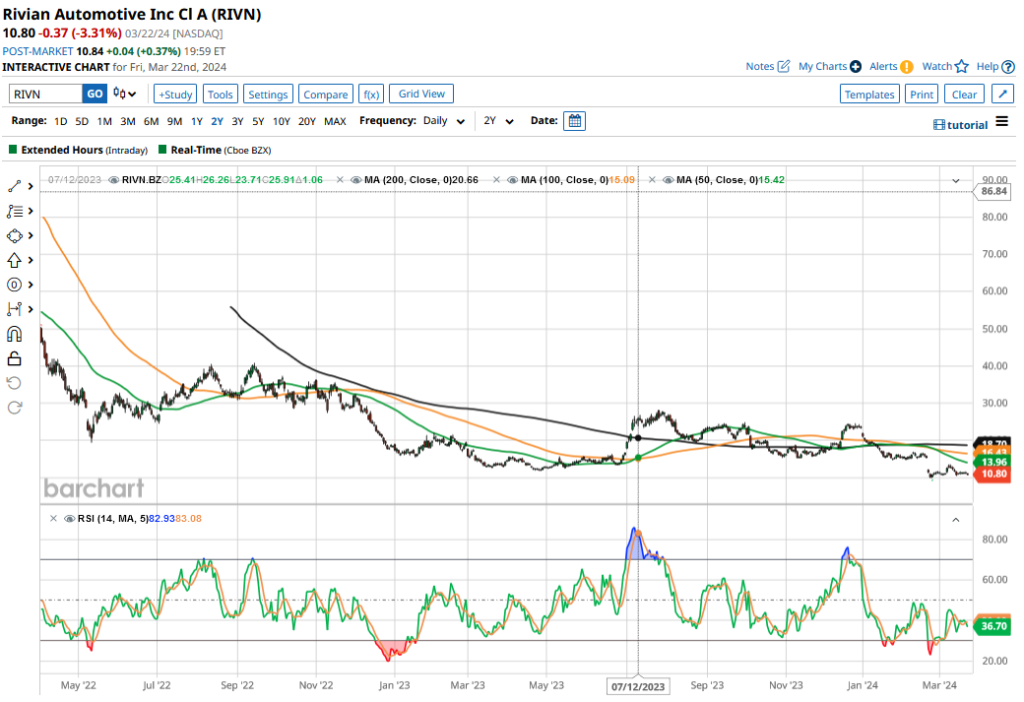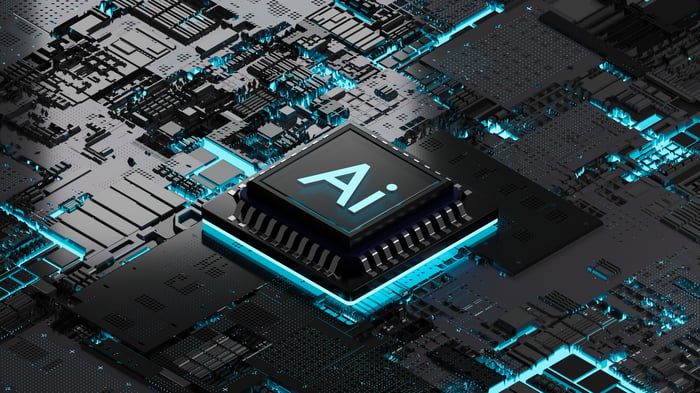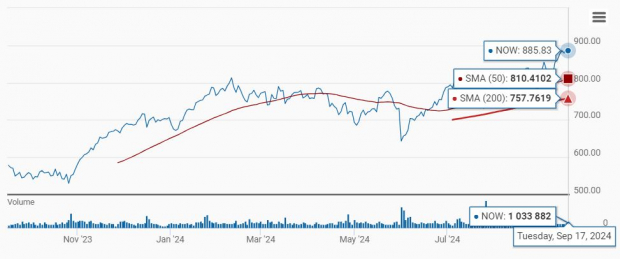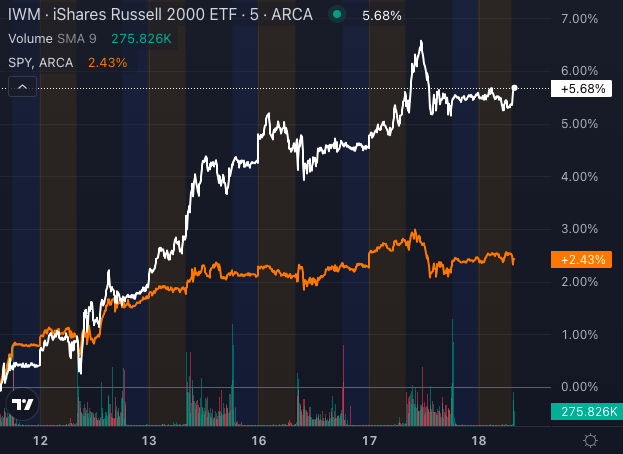The electric vehicle (EV) industry is experiencing a turbulent time in 2024, with U.S. market leader Tesla (TSLA) and companies like Rivian Automotive (RIVN) and Lucid Group (LCID) facing significant challenges. Rivian, in particular, has seen a sharp decline in its stock price, losing 55% year-to-date.
Just a few short years ago, the EV industry was a darling among investors, with Rivian commanding a market cap surpassing $150 billion in late 2021, surpassing even traditional automakers like Ford and General Motors.
The Downward Spiral of Rivian Stock
The decline in Rivian’s stock price in 2024 can be attributed to a combination of industry-wide challenges and internal factors. The company’s reduced production guidance for the year, signaling a year-over-year decrease in car deliveries, has further dampened investor sentiment.
In a landscape already grappling with a slowdown in electric car demand and a fierce price war among companies, Rivian’s struggles to contain costs and achieve profitability have come under increased scrutiny. These challenges have been exacerbated by a shift in investor preferences away from high-risk, loss-making companies.
The Road Ahead for Rivian Stock
Analysts have set a street-low target price of $9 for Rivian, indicating a potential further decline in the stock price. Despite this bearish outlook, the consensus view remains more optimistic, with a target price of $19.30, suggesting a substantial upside potential.
Rivian’s Strategic Moves
Rivian recently introduced its low-cost R2 vehicle, aimed at expanding its market reach with an affordable price tag. To mitigate cash burn, the company has delayed the construction of a new plant and announced plans to manufacture the R2 vehicles at an existing facility.
Is Rivian Stock a Buy?
With a solid cash position and a market cap of $10.5 billion, Rivian is relatively well-funded compared to its peers. While the stock currently trades at a modest enterprise value to revenue multiple, indicating a potential bottoming out, the company faces the critical task of scaling up production and achieving profitability.
Rivian’s management, led by CEO RJ Scaringe, must navigate these challenges diligently, akin to how Elon Musk transformed Tesla into an industry giant. The road ahead for Rivian will require a focus on increasing efficiency, reducing costs, and ultimately delivering sustainable profits.




